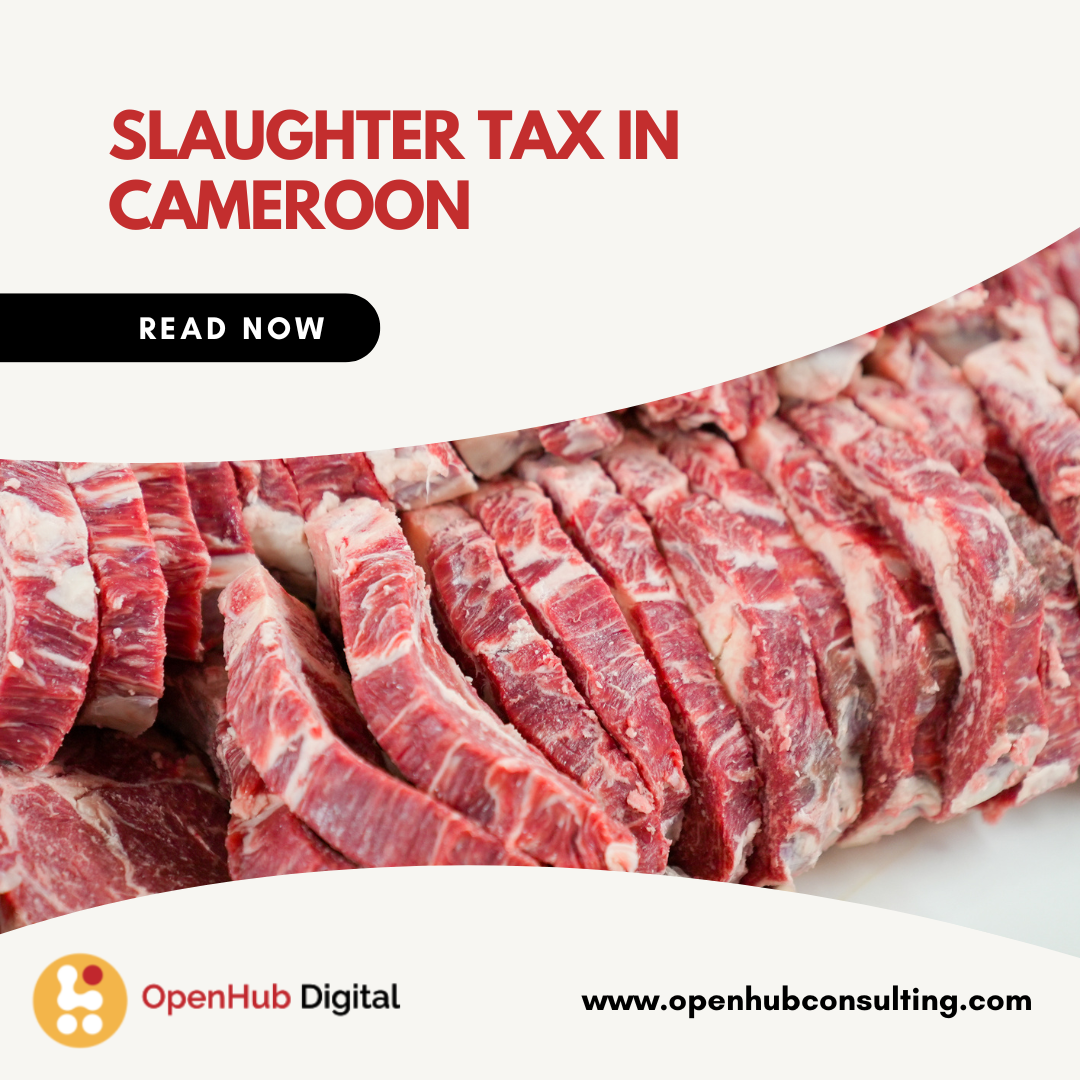Slaughter tax is an essential component of council levies in Cameroon. It is a tax imposed on butchers for livestock killed in slaughterhouses constructed or managed by the municipal council. The purpose of this tax is to generate revenue for the council and contribute to the local economy.
The maximum rates for the slaughter tax are fixed based on the type of livestock being slaughtered. For bovine and equine livestock, the rate is set at 1,000 CFAF (Central African CFA franc) per head. Porcine livestock is subject to a rate of 400 CFAF per head, while ovine and caprine livestock have a rate of 250 CFAF per head.
The assessment services of the council are responsible for calculating the amount of the slaughter tax. Once assessed, the tax is collected by the Council Revenue Collector. Butchers are required to make the payment before the slaughter takes place. It is essential for butchers to comply with these payment obligations to avoid penalties or sanctions.
If this article helped you, you can support our work at OpenHub.
Support OpenHub DigitalIn cases of fraudulent slaughter, where a butcher engages in illegal practices, additional penalties are imposed. The penalties for each head of bovine livestock killed are 10,000 CFAF, while for porcine, ovine, and caprine livestock, the penalty is 5,000 CFAF per head. These penalties are in addition to any other sanctions provided for by the regulations in force.
Understanding and meeting the obligations related to the slaughter tax is crucial for butchers in Cameroon. By ensuring timely payment, butchers contribute to the sustainable development of the local community and support the functioning of slaughterhouses managed by the council. Compliance with tax regulations also helps maintain a fair and transparent system for all stakeholders involved.
The revenue generated from the slaughter tax plays a significant role in funding various local infrastructure projects and services. These funds can be used to improve slaughterhouse facilities, enhance hygiene and sanitation standards, and invest in the development of the livestock industry. Moreover, the revenue generated from council levies, including the slaughter tax, contributes to the overall economic growth of the municipality.
In conclusion, slaughter tax is an important component of council levies in Cameroon. It serves as a vital source of revenue for the municipal council, supporting local infrastructure and services. Butchers must understand their obligations, including timely payment, to avoid penalties or sanctions. By complying with tax regulations, butchers contribute to the sustainable development of their communities and the livestock industry as a whole.

OpenHub Consulting Ltd
OpenHub Consulting offers comprehensive services to support your business’s needs. From bookkeeping and tax declaration to company incorporation, our expert team is here to assist you.
With our customized small business accounting solutions, you can trust that your financial records are accurate and up-to-date.
We also specialize in tax declaration services, ensuring that your business remains compliant with tax laws.
And when it comes to company incorporation, we streamline the process, guiding you through each step with precision. Visit openhubconsulting.com to learn more about how our services can benefit your business.
From Insight to Implementation
Going through the administrative and legal landscape in Cameroon requires more than just information—it requires a grounded local partner. At OpenHub Consulting, we specialize in helping the diaspora and international investors turn their business visions into compliant, operational realities.
If you are ready to move forward, our team is prepared to manage your registration and compliance from start to finish.
Start Your Company Incorporation →Discover more from OpenHub Digital
Subscribe to get the latest posts sent to your email.

